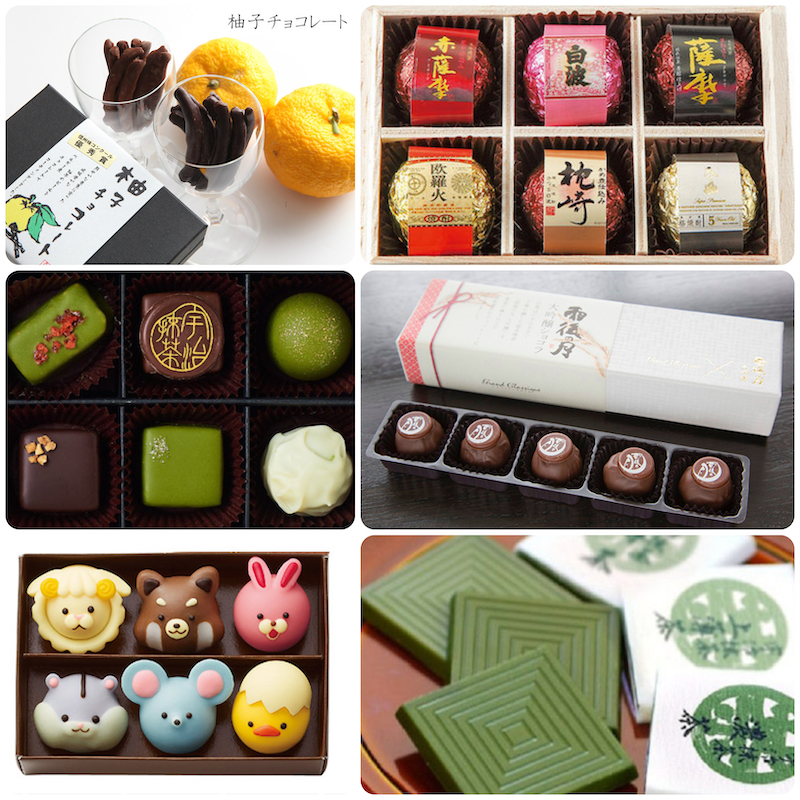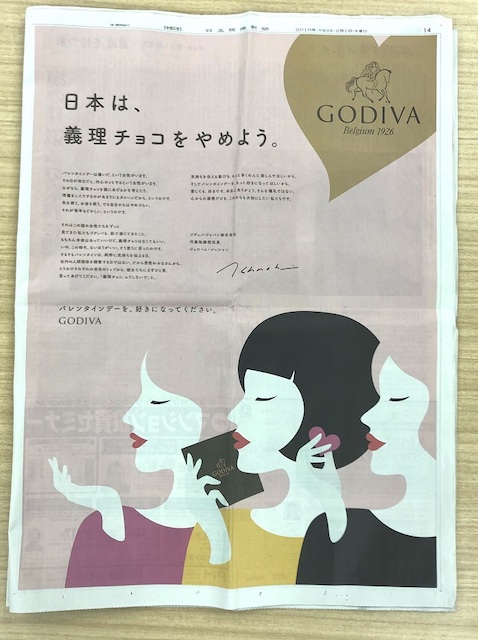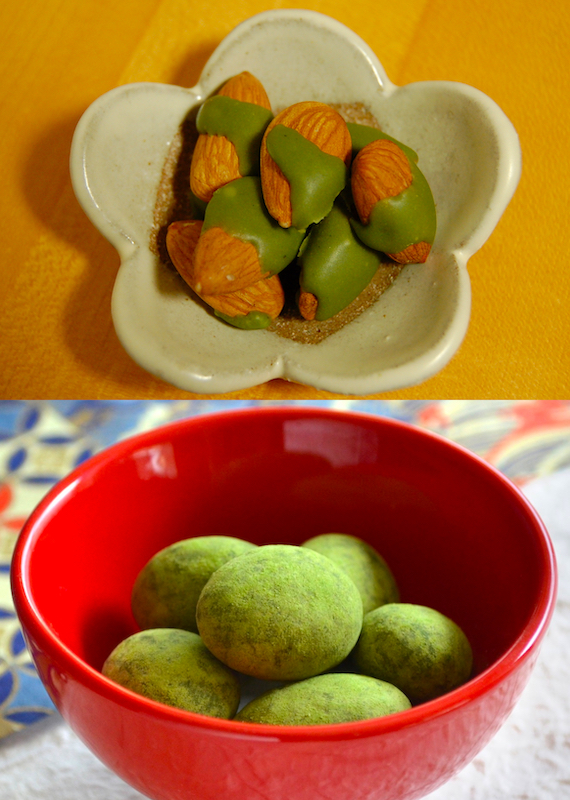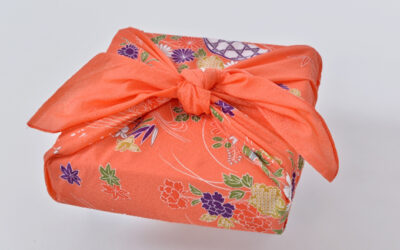
A sampling of Japan’s chocolates
(clockwide from top right) chocolate covered yuzu peel, bonbons filled with various shochū spirits, bonbons filled with saké, matcha infused chocolate planks, white chocolate animal characters, a variety of elegant truffles.
The Japanese Version of Valentine’s Day
日本のバレンタイン風習
Around the world, Valentine’s Day is synonymous with chocolate. The custom in Western cultures is for men to give women chocolates; in Japan it’s the reverse. Japan’s version of Valentine’s Day incorporates several distinctly Japanese cultural elements into the rituals practiced by others worldwide.
One of these is GIRI CHOKO 義理チョコ or “obligatory chocolates,” an innovative marketing ploy created by the Japanese retail community that began about 60 years ago. Advertising admonished OL (“office ladies” i.e. support staff) to present chocolate to their bosses at work… At school, girls were urged to give chocolate to their male teachers… And in the home setting, fathers, uncles and grandfathers came to expect chocolate trinkets from daughters, nieces and granddaughters.
Giri can be translated as “duty,” or at times as “self-sacrificing devotion.” It is in contrast to ninjō defined as “human feelings” or “sentimentality.” When it comes to gift giving on Valentine’s Day (and other occasions, too) giri infers that circumstances, rather than some special feeling, dictates the choice (and price) of the gift.
With the awareness in recent years of the need to curb pawa-hara パワーハラ (power harassment), the practice of giri choko has been questioned. In February of 2018, Godiva’s chocolates took out a full page, full-color ad in Nihon Keizai Shimbun (Japan’s equivalent of the Wall Street Journal) suggesting everyone abandon the practice of giri choko!

Another distinctly Japanese cultural element has worked its way into Japan’s Valentine’s Day rituals:
OKAÉSHI お返し (“return gifts”).
Reciprocity is important to the Japanese in maintaining good interpersonal relationships. A special day, March 14, has been set aside for this purpose. Called White Day (ホワイトデー) it is the time for men to gift women white chocolate.
On its own, white chocolate can be quite cloying, but mixing it with the fresh, grassy bitterness of matcha tea tones down the sweetness. And coating toasted almonds with the mixture adds a nice crunch.
Here are two versions of green tea infused, white chocolate nut nibbles: Whole toasted almonds drizzled with matcha-choko… and whole toasted almonds dipped in molten white chocolate and liberally dusted with powdered matcha.
Curious about the history of chocolate in Japan? Read my February 2020 newsletter





